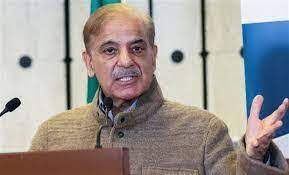Brij Bhardwaj
No matter how strong be the desire of Indian leadership to have normal relations with Pakistan, the recent offer of Pakistan Prime Minister cannot be taken seriously. Firstly, the offer is conditional, as it is linked with the issue of Kashmir and a demand that Indian Parliament decision to revoke article 370 be reversed, which had declared in one voice that Jammu and Kashmir was part of India and it was not negotiable.
At the same time Pakistan has also not spoken about Indian position that talks and terrorism can not take place at the same time. Pakistan Prime Minister has tried to involve United Arab Emirates in negotiations in violation of the Shimla agreement, which had declared that all issues will be resolved through bilateral talks and no third party will be involved. It is also no secret that Pakistan has talked about peace under pressure.
It is no secret that Pakistan Prime Minister went to Arab countries and United States with a begging bowl as economy of Pakistan is under great stress. Its foreign exchange reserves are running low, and there is high rate of inflation. There is a serious shortage of foreign currency to import essential items. Pakistan has been hit hard by floods and the aid promised is not coming in time to set things right.
Moreso Pakistan’s political situation is far from stable. The conflict between the Army and former Prime Minister Imran Khan has divided the country. Imran Khan, who came to power with the help of Army, later became champion of civil supremacy. The result is that two powerful wings of Pakistan establishment stand divided. More so, there is a regional divide also between provinces of Sindh and Punjab on one side and Frontier province on the other. Pakistan is also having trouble with the new regime of Afghanistan and different wings of Taliban.
In such a situation to expect serious negotiations with Pakistan to improve relations between the two countries is not easy. An unstable Pakistan, which is also a nuclear power, is a serious threat to peace. It has been regularly sending men and weapons across the line of control to Jammu and Kashmir in its attempt to disturb peace and attack innocents. Much as India would like peace with Pakistan and establish trade relations, it is not likely to happen in the current situation.
It is no secret that relations between India and Pakistan improved only during then period when there was army rule in Pakistan. Gen. Musharraf, who was master mind of plan to occupy heights in Kargil region of Jammu and Kashmir in an attempt to cut off India link with Ladakh subsequently made an attempt to seek peace. During his rule for a long time there was a serious fall in attempts to disturb peace by sending weapons or men across the line of control in Jammu and Kashmir.
Pakistan’s ability to disturb peace in sub-continent has been seriously reduced. United States is considering changing Pakistan’s status as an important non NATO ally of United States. Arab countries are also reluctant to keep on providing aid to Pakistan to save it from going bankrupt. China has become important supplier of arms and a trade partner of Pakistan. But it is no secret that Chinese are tough customers, and many countries that fell into their trap have not prospered and many became sick.
Pakistan Prime Minister may claim that they have learnt lessons from three armed conflicts with India, but real lesson will be to stop route of undeclared war in Jammu and Kashmir and seek genuine peace by cutting down on military spending that they can not afford. Bangladesh has shown the road by working for welfare of its people instead of wasting money on building nuclear arsenal. Pakistan could follow their example.
A genuine peace will be in the interest of all in the Indian sub-continent.
Trending Now
E-Paper


